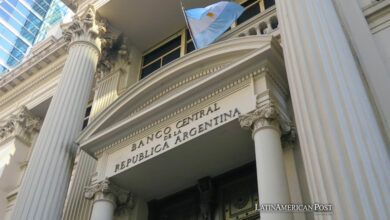The secret documents that put different entities of big banks in check could reveal some clues about Latin American corruption .

The leak of secret documents that represent a challenge for the region. / Photo: Unsplash
LatinAmerican Post | Ariel Cipolla
Listen to this article
Leer en español: ¿Qué son las FinCEN Files y por qué indigna su filtración?
Corruption is an evil that haunts Latin America. From the BBC they comment that there was a leak of "thousands of documents" that expose how the big banks facilitated the laundering of extraordinary amounts around the world. That is, there is talk of transactions that exceed 2 trillion dollars, where the largest banks on the planet and corrupt politicians moved dirty money.
We are talking about a real scandal that contains information that could be revealing for the political and economic future of various entities. Let's see, then, what the FinCEN Files are, how important they are, how they were obtained and why they could have a relevant role in Latin America.
The importance of FinCEN
Leaked documents often have a significant influence on the political scene. This is what happened, at the time, with the Panama Papers, where 11.5 million database files were revealed.
However, it would not be the first or the last time that something like this happened. In this case, we are talking about FinCEN Files. In La Nación they warn that they received a mysterious email that supposedly would reveal "leaked information" on a subject that is well known. That is money laundering and corruption.
With the acronym from The Financial Crimes Enforcement Network (FinCEN), it refers to about 2,100 suspicious activity reports prepared by banks and other financial institutions that were sent to this US institution. Therefore, all these documents were disseminated to the main international journalists and media.
From Perfil they clarify that it is the result of the investigation of the International Consortium of Investigative Journalists that, together with BuzzFeed News, spent about 16 months organizing and analyzing these documents, reading court records and files, as well as interviewing specialists on the subject. .
Now, what is revealed? Basically, a window into the way of operating of the large international banks, which would reveal the possible existence of criminal networks of politicians and tax evaders. In other words, a whole crusade of corruption where the fortunes of the public coffers could go directly into the hands of politicians.
Especially in Latin America, this issue can be of vital importance for the future. In Infobae they investigated that large Argentine companies "were under the scrutiny of the United States Anti-Money Laundering Unit" due to reports involving large sums of money, with the use of multiple accounts or methodologies with clients considered "high risk".
Also read: Latin American fiscal stimuli: necessary in times of pandemic?
The reports do not necessarily indicate criminal behavior or irregularities, but suspicious behavior is detected. In other words, banks raise their reports to FinCEN when money transactions that pass through the United States, the center of the legal financial flow, raise some kind of alerts.
In La Nación they add that, in the Argentine case, the FinCEN Files could expose the fortunes that circulated through various informal channels to jump the legal siege of the exchange rate imposed by Cristina Kirchner as of 2012. That is, possible illicit activities that the government did not allow, where there could have been specific dissolved societies that later left no traces.
Another of the cases that could be revealed in these documents, according to the CiperChile media, is that of Venezuelans who took their fortunes out of the country. Known as “Boliburgueses”, some personalities, such as the magnate Alejandro Ceballos who would have sent some 100 million dollars, were able to receive help from global banks to take their money to offshore accounts.
Knowing that, as New Society believes, democratic institutions in Latin America seem to be more fragile to political manipulation, being aware of the alerts from banks and the possible suspicious movements of people with large assets can help us understand, in a certain way, how corruption could work in our region.




